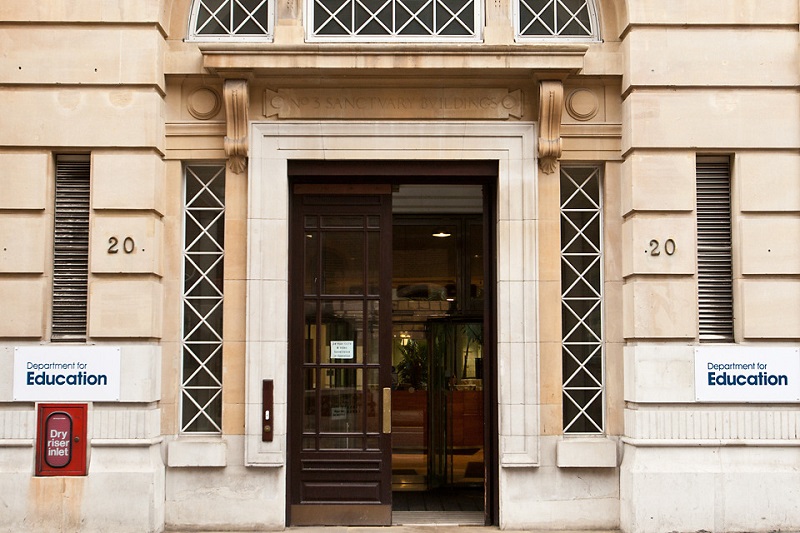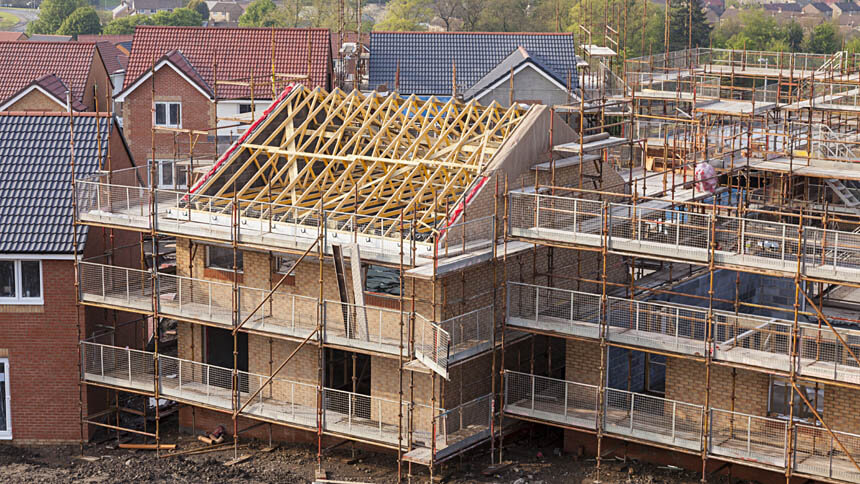RIBA has renewed its call on the Government to take immediate steps to rectify the problems caused by the use of the Reinforced Autoclaved Aerated Concrete (RAAC) in all public buildings.
It has made repeated warnings about the dangerous condition of England’s school estate and the Government is facing mounting criticism that it has ignored the issues for too long.
RIBA Chair of Board Jack Pringle said: “RIBA has long voiced serious concerns about the condition of school buildings. Our 2016 study – Better Spaces for Learning – highlighted that pupils and teachers are struggling to learn and teach in conditions damaging to their health and education.
“Alongside funding the mitigation of immediate safety risks through an industry-led task force, the Government must publish the Condition of Schools Survey without delay, to expose the full scale of this problem.

“It’s also clear however that RAAC failure goes beyond schools, and that’s why the Government must undertake an urgent audit of public buildings to identify how widespread it really is.
“Once immediate safety risks have been resolved, we need to look to the future. We must make sure this doesn’t happen again – learn from mistakes, ensure all products are safe, and have a programme of work to upgrade buildings as they reach the end of their life. The mobilisation of private finance will be key to achieving this.”
Education Secretary Gillian Keegan has now issued a statement to MPs on new guidance on RAAC in education settings.
“All schools and colleges that have advised us they suspect they might have RAAC will be surveyed within a matter of weeks – in many cases, in a few days,” she said. “Most suspected cases will not have RAAC – so far, when we have surveyed schools, around two-thirds of suspected cases do not have RAAC.
“We will follow the same approach with any new cases through the professional survey programme.
“The vast majority of schools will be unaffected and children should attend school as normal unless parents are contacted by their school.”
The minister confirmed a list of schools affected by RAAC will be published this week, with details of initial mitigations in place. After this, the Government will provide updated information as new cases of RAAC are confirmed and existing cases resolved.
She said each impacted school and college has a dedicated caseworker to help implement a mitigation plan.
“In terms of funding, as the Chancellor said, we will spend whatever it takes to keep children safe,” the minister continued.
“This includes paying for the emergency mitigation work to make buildings safe, including alternative classroom space, where necessary. Where schools need additional help with revenue costs, like transport to other locations, we are actively engaging with every school affected to put appropriate support in place.
“We will also fund the longer-term refurbishment or rebuilding projects where these are needed, to remove RAAC. Professional advice from technical experts on RAAC has evolved over time.”
The Government is now also facing calls for greater transparency as regards the use of RAAC in other public buildings, including hospitals and health centres, courts and civic places.




















